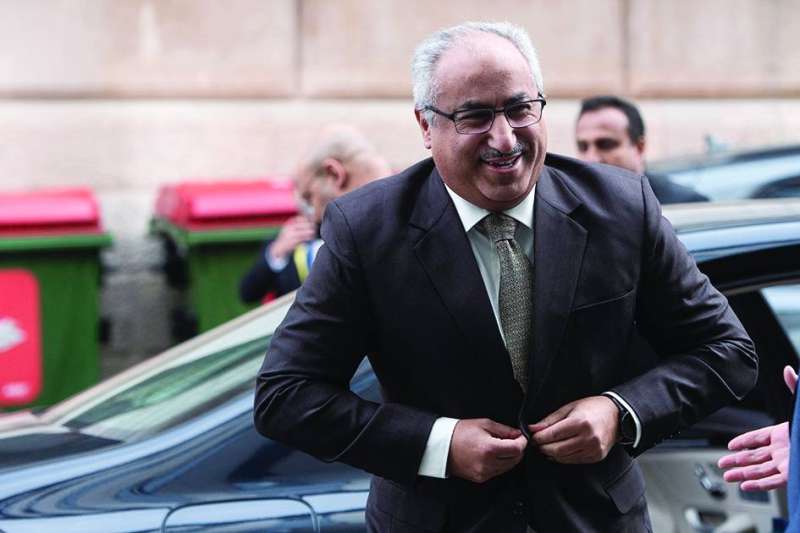Following their meeting in Vienna yesterday, “OPEC +” members decided to cut their daily output by two million barrels, beginning in November. This will be the biggest production cut since the “Corona” pandemic.
The “declaration of cooperation” between the nations of the bloc will be extended until the end of 2023, according to a statement from “OPEC Plus,” given that ministerial meetings will be held every six months.
And sources indicated that it is still not clear whether the cuts may include additional voluntary cuts by members such as Saudi Arabia, or whether they may include the actual production shortage of producing countries.
In the first US reaction, the White House said in a statement that US President Joe Biden was “disappointed” with the OPEC + decision, describing it as short-sighted.
The Biden administration will work with Congress on further instruments and methods to lessen the control of the (coalition of crude producing countries) over energy prices, the US presidency stated in response to the decision.
Additionally, White House spokesman John Kirby had stated that “OPEC +” and foreign oil producers needed to be less dependent on by the United States, remarking to Fox News that the cuts would cause “OPEC +” to modestly modify its figures after growing output during the summer.
“Three and a half million more barrels than they really produce are claimed to be produced by (OPEC +). Consequently, in some ways, this announced reduction merely helps them get back in line with actual output “Added he.
And “CNN” cited sources as saying that the Biden administration launched a significant pressure campaign in a last-ditch effort to discourage allies in the Middle East from significantly reducing oil production prior to the “OPEC +” decision yesterday. This is dangerous timing for the Biden administration as there are only five weeks until the midterm elections.
The potential of cutting oil production was referred to as a “total disaster” in a draught provided by the White House to the US Treasury on Monday, with a warning that it may be viewed as a “hostile act.”
A suggestion was made in the draught that if OPEC+ reduced output, Washington would announce the repurchase of up to 200 million barrels to replenish its strategic reserve, an emergency oil stockpile that it has been using this year to drive down oil prices.
Regarding a US bill against OPEC, Citi analysts warned in a report that “there may be greater political retribution from the United States, including future releases of strategic stocks.”
UAE and Saudi Arabia
Saudi Arabia’s Energy Minister Prince Abdulaziz bin Salman emphasised the need for “pre-action” in his remarks following the OPEC decision, emphasising the significance of “continuing to make promises to benefit the world economy.”
”
“What we are doing is crucial for all oil exporters, even outside (OPEC +),” he continued, stressing that the group would continue to play a significant role in maintaining the stability of the world economy.
The Saudi Energy Minister spoke of the market’s unparalleled volatility and noted that the current state of affairs makes it challenging for large consumers to turn to the “paper market.”
He noted that it is untrue that the genuine reduction in OPEC oil output will be 0. 5 million barrels per day, estimated at 1 to 1. 1 million barrels, and added, “We do not know how a price ceiling will be enforced on Russian oil.
We do not know the effects of anti-inflation policies on global demand, Prince Abdulaziz remarked in reference to the effect that central banks’ actions have on demand, stressing the need for prudence and awareness as well as the need to “be honest about our ability to forecast the future.”
Suhail Al Mazrouei, the UAE’s energy minister, said to reporters ahead of the meeting that “the decision will be technical, not political,” adding, “We will not transform it into a political organisation.
“Brent increases by over two bucks.”
After the “OPEC Plus” deal yesterday, oil prices increased to their highest level in three weeks, despite the limited supply and the United States’ and other countries’ objections to production restrictions.
Following a session-high price of $93. 96 per barrel, the highest since September 15, Brent crude increased $2.01, or 2.2%, to $93. 81 per barrel.
The price of US West Texas Intermediate crude increased by $1. 78, or 2.1%, to $88.
3 a barrel, its highest level since September 15 as well, after reaching $88. 42 a barrel during the session.
Biden views the decision by “OPEC +” to cut its supplies by two million barrels per day as disappointing and short-sighted.

